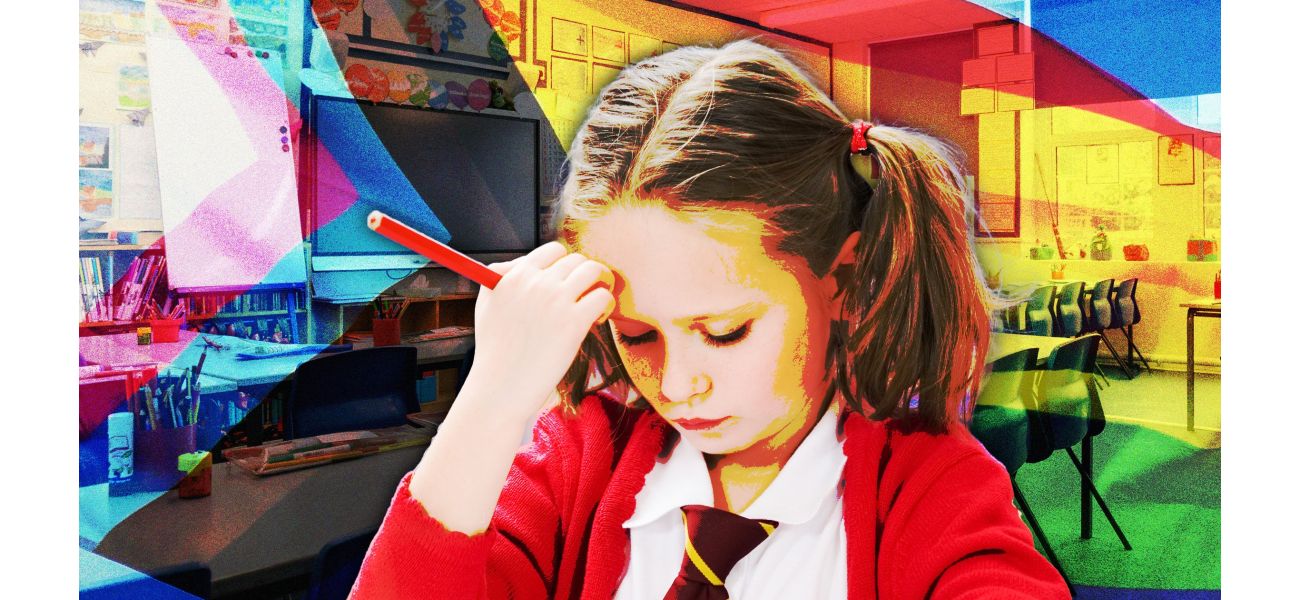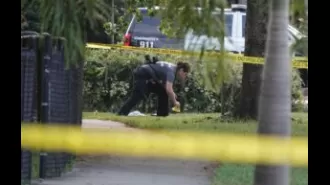Kids using anti-LGBTQ language without understanding its impact.
Being a boy with long hair, I've been insulted by being called gay.
October 21st 2024.

TikTok has become a popular platform for young people to stay connected and up-to-date with the latest trends and memes. However, it has also become a breeding ground for the use of homophobic slurs and language. This was revealed in a recent survey conducted by LGBTQ+ youth charity, Just Like Us, which found that nearly eight in 10 LGBTQ+ youngsters have heard homophobic language, whether it be in school hallways or on social media.
The survey, which involved 31,875 pupils across the UK, showed that LGBTQ+ students, both in primary and secondary schools, have experienced taunts and harassment from their peers. In fact, some students were even subjected to homophobic language without their peers realizing the harm it can cause. The survey found that 78% of primary school children aged nine to 11 have heard homophobic language, while 80% of secondary school students reported the same.
The use of homophobic slurs, particularly the word "gay" as an insult, was found to be common among primary school pupils, especially in viral TikTok trends. Students also shared that their peers often used homophobic language without understanding its impact on the LGBTQ+ community. Unfortunately, this is not a new issue. Studies have shown that LGBTQ+ students are more likely to be bullied and suffer from anxiety and depression compared to their straight peers.
The survey by Just Like Us also revealed that many young people have heard homophobia on TikTok, a popular app used by 50% of children in the UK. One such trend involved a TikToker approaching a group of seemingly straight men and telling them, "Whoever moves first is gay." This trend, which has been replicated in various videos, has been viewed by over 11 million people. It is alarming to see how easily young people can pick up and perpetuate homophobic ideas, even without realizing the harm it causes.
One parent shared their experience of their nine-year-old child playing a TikTok "game" with friends, where the loser would be called "gay." The parent's child, who has gay foster parents, eventually refused to participate, leading to one of their friends calling them "gay" as an insult. This incident highlights the need for education and awareness on the harmful effects of using homophobic language.
Just Like Us has partnered with VotesforSchools, an organization that engages children in political and social issues, to conduct this survey. The charity's chief executive, Laura Mackay, emphasized the importance of education in addressing the rise in homophobia. Just Like Us has provided resources for teachers to help them promote compassion and create a safe environment for all students.
Using homophobic language as "just a joke" should never be dismissed, as it can have serious consequences on the self-esteem and well-being of LGBTQ+ youth. It is crucial for everyone to be aware of the impact of their words and actions on others. As one child from Bristol shared, lessons and discussions in school have helped to increase their understanding and make them better allies. It is heartening to see that education and awareness are making a positive impact, and we must continue to work towards creating a safe and inclusive society for all.
The survey, which involved 31,875 pupils across the UK, showed that LGBTQ+ students, both in primary and secondary schools, have experienced taunts and harassment from their peers. In fact, some students were even subjected to homophobic language without their peers realizing the harm it can cause. The survey found that 78% of primary school children aged nine to 11 have heard homophobic language, while 80% of secondary school students reported the same.
The use of homophobic slurs, particularly the word "gay" as an insult, was found to be common among primary school pupils, especially in viral TikTok trends. Students also shared that their peers often used homophobic language without understanding its impact on the LGBTQ+ community. Unfortunately, this is not a new issue. Studies have shown that LGBTQ+ students are more likely to be bullied and suffer from anxiety and depression compared to their straight peers.
The survey by Just Like Us also revealed that many young people have heard homophobia on TikTok, a popular app used by 50% of children in the UK. One such trend involved a TikToker approaching a group of seemingly straight men and telling them, "Whoever moves first is gay." This trend, which has been replicated in various videos, has been viewed by over 11 million people. It is alarming to see how easily young people can pick up and perpetuate homophobic ideas, even without realizing the harm it causes.
One parent shared their experience of their nine-year-old child playing a TikTok "game" with friends, where the loser would be called "gay." The parent's child, who has gay foster parents, eventually refused to participate, leading to one of their friends calling them "gay" as an insult. This incident highlights the need for education and awareness on the harmful effects of using homophobic language.
Just Like Us has partnered with VotesforSchools, an organization that engages children in political and social issues, to conduct this survey. The charity's chief executive, Laura Mackay, emphasized the importance of education in addressing the rise in homophobia. Just Like Us has provided resources for teachers to help them promote compassion and create a safe environment for all students.
Using homophobic language as "just a joke" should never be dismissed, as it can have serious consequences on the self-esteem and well-being of LGBTQ+ youth. It is crucial for everyone to be aware of the impact of their words and actions on others. As one child from Bristol shared, lessons and discussions in school have helped to increase their understanding and make them better allies. It is heartening to see that education and awareness are making a positive impact, and we must continue to work towards creating a safe and inclusive society for all.
[This article has been trending online recently and has been generated with AI. Your feed is customized.]
[Generative AI is experimental.]
0
0
Submit Comment





